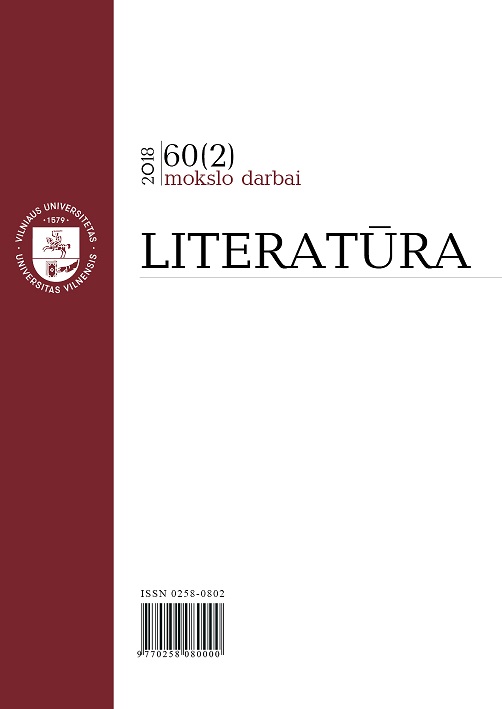Контуры России в творчестве Юргиса Балтрушайтиса: от поэзии к дипломатии
The Contours of Russia in the Works of Jurgis Baltrušaitis: From Poetry to Diplomacy
Author(s): Julija SnežkoSubject(s): Cultural history, Poetry, Diplomatic history, Russian Literature
Published by: Vilniaus Universiteto Leidykla
Keywords: Baltrusaitis; Diplomatic Letters; Poetry; Russia; Imperial Sublime;
Summary/Abstract: In this article, some artistic features of the conception of Russia belonging to the poet and diplomat Jurgis Baltrušaitis are analyzed. The material of research are the poems of his that the author had devoted to Russia and his diplomatic letters, which are stored in the Central State Lithuanian Archive and that earlier were not analyzed from this point of view. The subject of the article is of interest because still from one aspect or another question concerning the place of Russia and Lithuania in Baltrušaitis’ life is put forward. Not surprisingly, this is influenced by the unique circumstances surrounding Baltrušaitis’s life – his belonging to both cultures, Lithuanian and Russian. The comparison of the theme of Russia in “remote” in regard of each other genres reveals that they share something in common. It is shown that the lyrical subject in the poems and letters of Baltrušaitis experiences a special lyrical afflatus toward the growing power of Russia (or the Russian nation) and its special mission, which correlate with the space of the Empire. The author of this article demonstrates that the treatment of the theme of Russia in poetry touches the sublime Russian imperial tradition. The reverberation of the imperial sublime is also to be found in his diplomatic letters. However, if, in the analyzed poems, Baltrušaitis felt being part of the Russian imperial culture, in his diplomatic letters, Russia is perceived by the author from the side of the other – the Lithuanian culture – and the remaining afflatus is thus mixed with a constant sense of danger emanating from Russia and anxiety about the fate of the young Lithuanian state. Also, it can be stated that in general, his philosophically-hermetic poetry, the “revolutionary” poems and diplomatic letters devoted to Russia, share a common rhetoric of inner and outer space, inner and outer power, size and motion.
Journal: Literatūra
- Issue Year: 60/2018
- Issue No: 2
- Page Range: 122-135
- Page Count: 14
- Language: Russian

